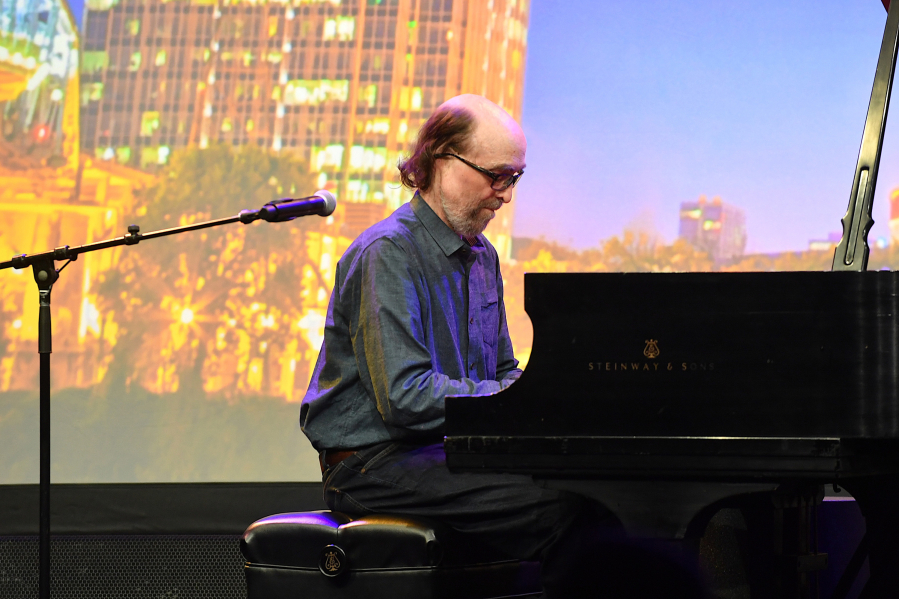SAN DIEGO — Unlike many musicians who sold millions of album and drew devoted concert audiences for several decades, George Winston did not want to be remembered.
The soft-spoken pianist, who died June 4 from cancer at the age of 74, made that point very clear in a 1996 San Diego Union-Tribune interview.
“I don’t want to be remembered,” he said.
“I have (it) in my will that there’s to be no funeral, only cremation. Benny Goodman, who remembers him? Who even plays clarinet?
“It takes about three generations to forget about everything, so I have no doubt I’ll be forgotten, and that’s good. … I had the privilege of playing for you all, now let’s move on.”
But Winston, whose solo piano recordings made him the biggest-selling artist of the 1980s and ’90s in the New Age category, did want to be remembered for other people’s music.
More specifically, the music he championed on his Dancing Cat record label by such noted Hawaiian slack-key guitarists as Cyril Pahinui and Ray Kane.
“If people remember me for anything,” Winston said, “I hope it’s for helping to make slack-key as visible as other guitar traditions. If slack-key albums are available for people, then I’ve done my job.”
Winston was born Feb. 11, 1949, in Hart, Mich., and grew up in grew up in Mississippi, Florida and Montana. He took piano lessons as a kid, then switched to organ after hearing the debut album by the Doors.
By the 1970s, Winston had turned to solo piano. His first album, 1972’s “Ballads and Blues,” made no impact.
But his next album, 1980’s pastoral “Autumn,” put him on the map, along with Windham Hill, the nascent Palo Alto record company that soon became one of the most successful independent labels in the nation.
Both he and Windham Hill became synonymous with New Age. It was a category Winston was quick to distance himself from, albeit without much success.
“I’m not New Age,” he stressed.
“I call what I do ‘rural folk.’ I could call it country, but that would be more confusing. People would ask: ‘Is he like Randy Travis? ‘Contemporary instrumental’ is nebulous. But, as little soul as it has, that’s the best thing to call it.”
Winston’s music was pleasant if innocuous, soothing but lacking in nuance, emotional intensity, thematic variation and dynamic tension and release. But no matter. It provided a welcome aural balm for his loyal listeners.
And loyalty was paramount to Winston.
He made his San Diego debut at the living-room-sized Old Time Cafe in Leucadia and continued to have them produce his San Diego concerts — even after he began performing in such major area venues as the San Diego Civic Theatre and the Speckels Theatre.
Attendees at his concerts here were given free brochures that endorsed nearly two-dozen of his favorite artists, including albums jazz piano greats Teddy Wilson and Dollar Brand, guitarists Ralph Towner and Bola Sete, singer-songwriter Randy Newman, New Orleans music icon Professor Longhair, minimalist composer Steve Reich, and others.
“I like playing music a lot, and I like telling people about the people I came from probably even more,” Winston explained.




